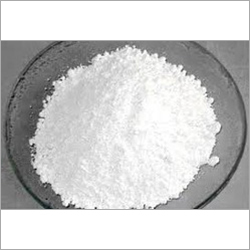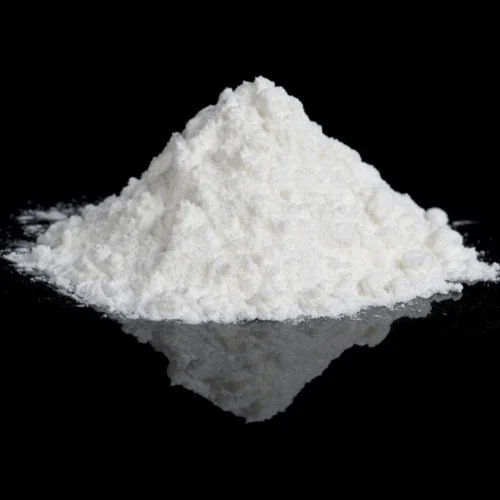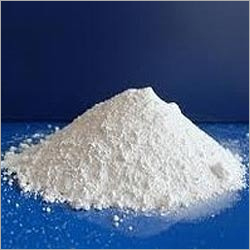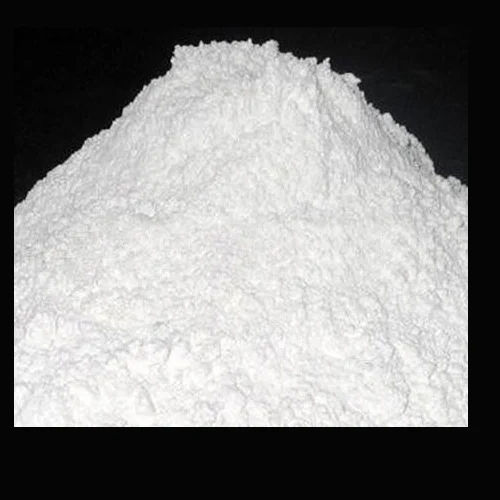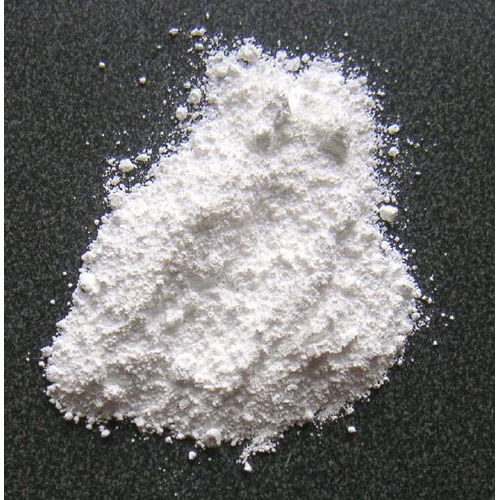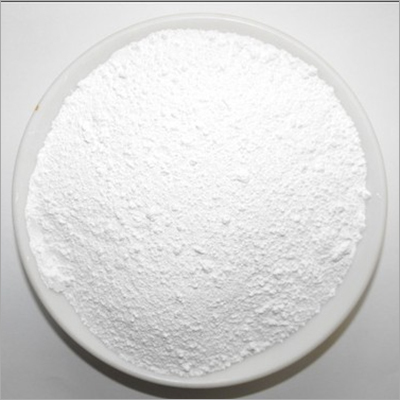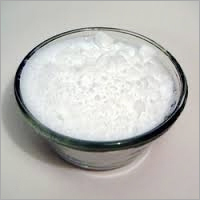Call Us : 08045816053
Titanium Dioxide
Product Details:
- Purity 98%
- Storage Room Temperature
- Solubility Insoluble In Water
- Form Powder
- Grade Industrial Grade
- Usage Industrial
- Click to View more
X
Titanium Dioxide Price and Quantity
- 25 Kilograms
Titanium Dioxide Specification
- Industrial
- Room Temperature
- Powder
- Insoluble In Water
- Industrial Grade
- 98%
Titanium Dioxide Trade Information
- Cash in Advance (CID)
- 7 Days
- Yes
- Free samples are available
- Plastic Bags / Paper Bags
- Australia Eastern Europe Middle East South America Western Europe Africa Central America Asia North America
- All India
Product Description
We are an acclaimed manufacturer of Titanium Dioxide for our highly esteemed clients. It is widely used in painting, paper making, printing oil and plastic. Premium quality material and machinery is used for making this chemical at our vendors unit in sync with the prevailing market standards and norms. Titanium Dioxide is offered in safe packaging in order to serve our clients with a flawless defect free range. We offer this industrial chemical at highly affordable prices among our competitors.
Titanium Dioxide Applications:
Titanium dioxide (TiO2) is a versatile compound that finds numerous applications across various industries due to its unique properties. Here are some common applications of titanium dioxide:
1. Pigments and Paints: One of the most significant uses of titanium dioxide is as a pigment in paints, coatings, and plastics. It provides excellent whiteness, brightness, and opacity, enhancing the color and coverage of the applied material.
2. Cosmetics and Personal Care Products: Titanium dioxide is used in a wide range of cosmetics and personal care products such as sunscreen, foundation, lotion, and toothpaste. It acts as a UV filter, protecting the skin from harmful UVA and UVB radiation.
3. Food and Beverage Industry: Titanium dioxide is approved for use as a food additive and is used to enhance the appearance of food products. It is commonly found in products such as candies, chocolates, chewing gum, cake icing, and white sauces.
4. Photocatalysis: Titanium dioxide is a photocatalyst, meaning it can accelerate chemical reactions under light exposure. This property finds applications in self-cleaning surfaces, air and water purification systems, and antibacterial coatings.
5. Ceramics and Glass: Due to its high refractive index and thermal stability, titanium dioxide is used in the production of ceramic glazes, glass, and enamel. It helps improve the durability, gloss, and color of the finished products.
6. Paper Industry: Titanium dioxide is used as a filler in the paper industry to improve paper brightness, opacity, and printability. It also enhances the resistance to discoloration caused by light exposure.
7. Plastics and Rubber: Titanium dioxide is incorporated into plastics and rubber products to enhance their opacity, whiteness, and resistance to UV degradation. It is commonly used in products like PVC pipes, packaging materials, and automotive parts.
8. Inks: Titanium dioxide is used in the production of inks, including printing inks and inkjet inks. It improves the color intensity, coverage, and durability of the ink on various substrates.
9. Photovoltaic Cells: Titanium dioxide is used in dye-sensitized solar cells (DSSCs) as a key component of the photoactive layer. It helps capture and convert sunlight into electricity.
Titanium Dioxide Properties:
Titanium dioxide (TiO2) possesses several key properties that make it a valuable material in various applications. Here are some important properties of titanium dioxide:
1. Whiteness and Opacity: Titanium dioxide is known for its exceptional whiteness, which is why it is widely used as a white pigment. It has a high refractive index, meaning it efficiently scatters and reflects light, resulting in high opacity and brightness in materials such as paints, coatings, and plastics.
2. UV Absorption: Titanium dioxide exhibits strong UV-absorbing properties. It can absorb both UVA and UVB radiation, making it useful in sunscreens and other sun protection products. It helps protect the skin from harmful UV rays, which can cause sunburn, premature aging, and skin cancer.
3. Photocatalytic Activity: Titanium dioxide is a photocatalyst, meaning it can accelerate chemical reactions in the presence of light. When exposed to UV light, TiO2 initiates reactions that can break down organic compounds, pollutants, and certain bacteria. This property finds applications in self-cleaning surfaces, air and water purification systems, and antibacterial coatings.
4. Chemical Inertness: Titanium dioxide is chemically inert, meaning it is resistant to many chemicals, acids, and alkalis. This property makes it suitable for use in corrosive environments and ensures its stability in various applications.
5. High Thermal Stability: Titanium dioxide can withstand high temperatures without undergoing significant changes in its properties. This thermal stability is essential for applications in ceramics, glass, and high-temperature processes.
6. Low Toxicity: Titanium dioxide is considered relatively non-toxic and safe for use in many applications. However, there has been some debate regarding the potential risks associated with inhaling fine particles of TiO2, particularly in occupational settings where it can be inhaled as a dust. Manufacturers take precautions to minimize particle dispersion and exposure.
7. Electrical Insulation: Titanium dioxide is an electrical insulator, meaning it does not conduct electricity. This property is beneficial in applications where electrical conductivity is undesired, such as insulating coatings and electronic devices.
8. Abrasion Resistance: Titanium dioxide is known for its high abrasion resistance, which contributes to its durability in coatings, paints, and plastics. It helps maintain the integrity and appearance of the material over time, even in high-traffic or harsh environments.
Frequently Asked Questions:
Q: What is titanium dioxide?
A: Titanium dioxide (TiO2) is a naturally occurring compound that is commonly found in minerals, soil, rocks, and sands. It is also produced synthetically for various industrial applications.
Q: How is titanium dioxide produced?
A: Titanium dioxide is typically produced through two main processes: the chloride process and the sulfate process. In the chloride process, titanium ore is chlorinated, purified, and oxidized to obtain titanium dioxide. The sulfate process involves dissolving titanium ore in sulfuric acid to produce a solution, which is then hydrolyzed and calcined to obtain titanium dioxide pigment.
Q: What are the different types of titanium dioxide?
A: Titanium dioxide is available in various forms, including rutile, anatase, and brookite. Rutile is the most commonly used form due to its high opacity and stability. Anatase has a slightly lower opacity but exhibits higher photocatalytic activity. Brookite is less common and mainly used in research and specialized applications.
Q: What are the main applications of titanium dioxide?
A: Titanium dioxide has numerous applications across industries. It is primarily used as a white pigment in paints, coatings, plastics, and paper. It is also used in cosmetics, sunscreen, ceramics, glass, food products, inks, and as a photocatalyst for air and water purification.
Q: Is titanium dioxide safe to use in consumer products?
A: Titanium dioxide is generally considered safe for use in consumer products. However, there have been concerns regarding the inhalation of fine particles of TiO2, particularly in occupational settings. Manufacturers take precautions to minimize exposure risks. Regulatory bodies, such as the FDA and the European Food Safety Authority (EFSA), have established guidelines for its safe use in various applications.
Q: Is titanium dioxide harmful to the environment?
A: Titanium dioxide is considered environmentally safe. However, excessive discharge of titanium dioxide particles into water bodies or air can have localized ecological impacts. Additionally, the photocatalytic activity of TiO2 can contribute to the degradation of certain organic compounds and pollutants in the environment.
Q: Can titanium dioxide be used in food products?
A: Yes, titanium dioxide is approved for use as a food additive in many countries, including the United States and the European Union. It is used to enhance the appearance of food products, providing a white, bright color. However, there have been discussions regarding its use in certain food products, and regulations may vary by jurisdiction.
Q: Does titanium dioxide have any other notable properties?
A: Yes, titanium dioxide exhibits properties such as UV absorption, photocatalytic activity, chemical inertness, high thermal stability, electrical insulation, and abrasion resistance. These properties contribute to its diverse range of applications.
Enter Buying Requirement Details
 English
English Spanish
Spanish French
French German
German Italian
Italian Chinese (Simplified)
Chinese (Simplified) Japanese
Japanese Korean
Korean Arabic
Arabic Portuguese
Portuguese
